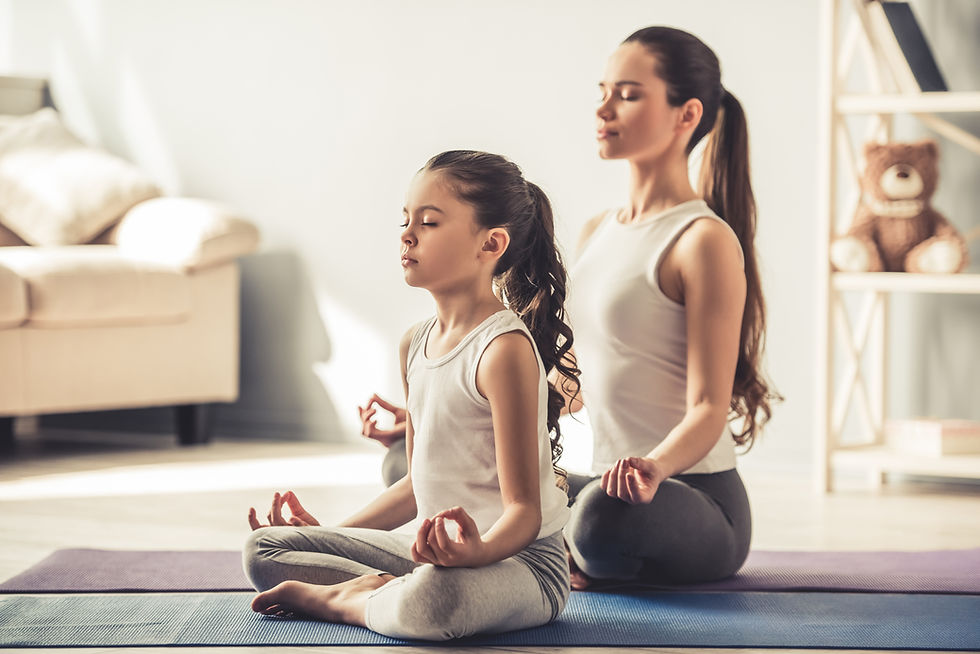How To Stop Collecting Pain and Finally Let Go
- Big Human Jenna

- May 8, 2021
- 4 min read
Updated: Sep 2, 2021

I’ve known many pain collectors in my life. Some that experienced trauma. Some that suffered with clinical depression. And some who'd had seemingly perfect lives. Being a psychologist at heart, I've often tried to find the thread that unifies these various people. And the truth is, it’s really difficult to paint a cohesive picture because pain collectors come from all walks of life. Yet, I’ve found that what unites them is a core belief that their life is a montage of moments stitched together by suffering and injustice. They believe they’ve gotten a raw deal and every negative event that has happened is proof that life is conspiring to both punish them and make them miserable.
Through this lens, pain collectors begin to gather proof to support their core beliefs. And they don't need to look very far. Life indeed is full of adversity. We get the dream job only to find out our new manager is a bully or we buy our dream home only to find out it's a fixer upper. Or maybe we're in perfect health one day and get the news we have a life threatening illness the next. The list is endless. But the thing is, the more we look for the negative, the more negative our life becomes. Our suffering multiplies. Not only do we have the pain from our past, but pain in the present, and the ever-looming fear of future pain.
Here's the thing, joy can't co-exist within a mind that can only see and feel pain. It needs light to thrive. It needs gratitude. It needs the wisdom that comes with knowing that everything is temporary and that just as our breath rises and falls, so too does suffering. We are in a sense continually arriving. But, when we're trapped in this endless pain collection cycle everything seems out of our control. Life is happening to us. We don't realize that we're co-creators of life. As pain collectors, we're life's victims. And no one can thrive in that kind of soil.
Breaking the cycle
So, how can we break the cycle? First, we need to suspend disbelief that things can be different. This means expanding our minds, in a sense, to entertain the notion that life is part destiny and part free will. Sure, some things are beyond our control. Absolutely. But how we think about those things are not. If we start to allow ourselves to see the positive things despite the negative events in our lives, we can make room for joy and gratitude. This means casting aside our beliefs about justice and fairness.
Justice and fairness beliefs
Our conception of fairness and justice start when we're young. For those who don't have a history of trauma, it could be good to examine these concepts. You might find as you explore, that you're carrying very old paradigms.
However, if you've experienced early childhood trauma there could be parts of you that still want justice for what you went through. Sometimes children need to make sense of the unimaginable with a developing brain that doesn't have the capacity to understand.This can take years to sort out as an adult. And that's ok! We all need to go through each gate of trauma-healing in our own time, which also means doing somatic experience work and nervous system regulation training. There's no fast forwarding though it (sadly). I spent decades wading through it.
As a trauma survivor, you might also still believe that what happened to you wasn't fair. And you might be holding onto these beliefs for dear life because, well, it's really hard to let go of these. And also because you're right! It's not fair and someone should be held accountable. But as we heal from trauma, we start to realize that letting go doesn't mean it didn't happen.We don't have to forget it to be free from the suffering. It means we can integrate it into the story of our lives and not allow it to drive our every interaction and decision in life.
How to let go
I think the first step in letting go of pain is really getting to know it intimately. This type of intimacy comes from sitting with our experience through a daily meditation practice. As we sit, we can begin to learn self-compassion and to approach our experience with loving kindness and gentle curiosity. We can start to unravel where the pain comes from, what it's trying to tell us, and how we can be compassionate towards it. The more we can sit with our thoughts and physical experience, the more we can live in the here and now. I call this nowness :) When we are in the now, we are able to be fully present. Life becomes something we are actively co-creating. We can hear the birds. Smell the air. Feel our feet on the floor. And follow our breath. Nowness requires nothing else. And through this nowness we can learn to accept our experience exactly as it is, knowing that we are not our thoughts. And that our thoughts can change. We learn that we have the power to release through our body and to continually arrive.
And despite what you may have heard meditation is not just a sitting practice. It's a walking practice. An eating practice. A typing on your computer practice. It's a way of life and it can carry through every moment of your day. This is the beauty of it.
And if you're interested in learning more, please don't hesitate to reach out! I also offer resilience coaching.
In addition, I have a few videos on how to get started in developing a meditation practice.
Many blessings!
Jenna




Comments